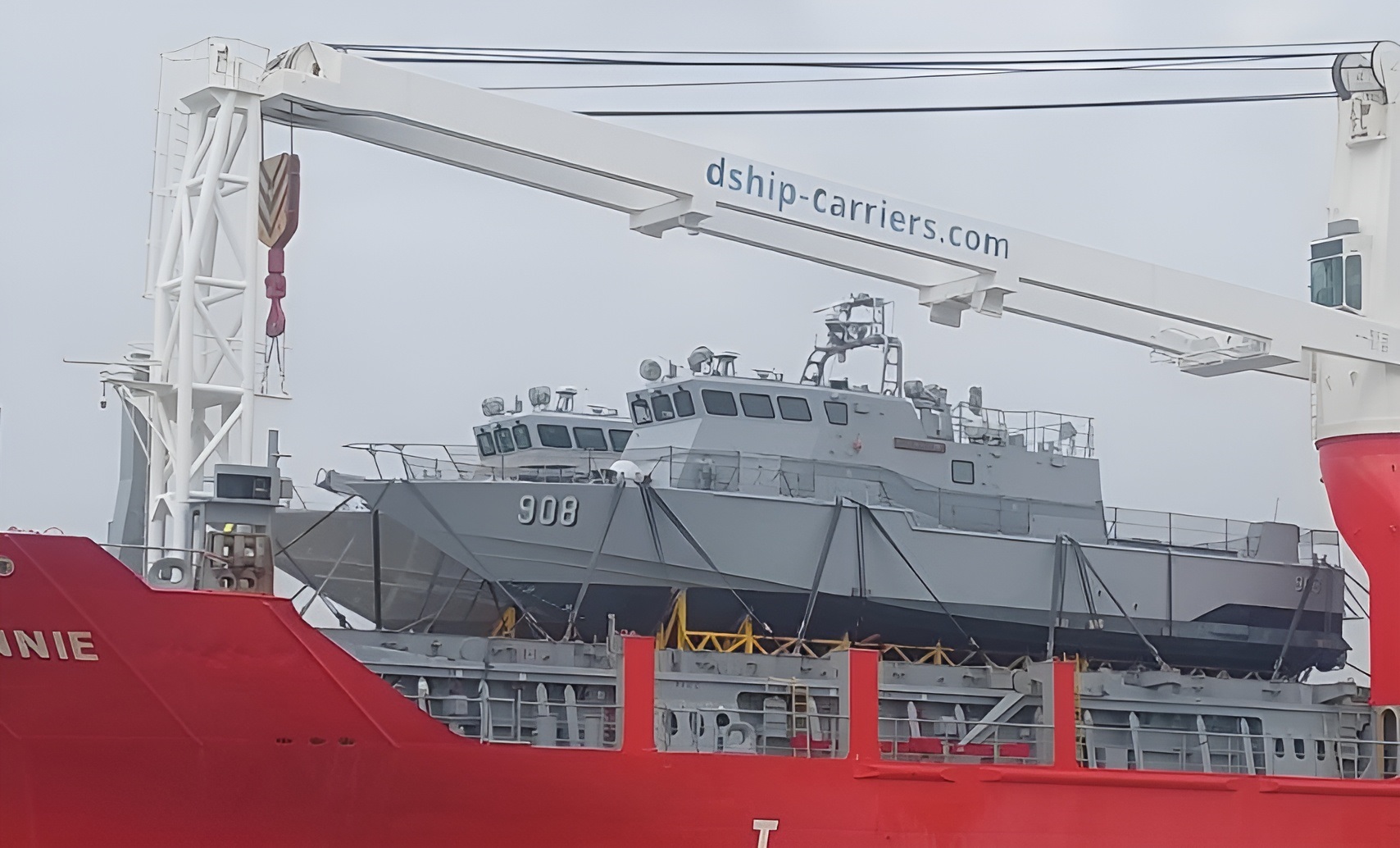The Philippine Navy (PN) has taken another significant step in modernizing its naval fleet with the recent delivery of two additional Acero-class fast attack interdiction craft (FAIC). The vessels, delivered at Manila South Harbor’s Pier 15 on September 17, 2024, will enhance the Navy’s maritime defense capabilities as part of a broader push to strengthen the country’s Self-Reliant Defense Posture (SRDP). These new FAICs, which will bear the bow numbers PG-908 and PG-909, bring the total number of such patrol vessels in the Philippine fleet to eight, with one more vessel slated for delivery by the contractor, Israeli Shipyards Ltd. According to Lieutenant Giovanni Badidles, the Philippine Fleet spokesperson, the two new FAICs are equipped with state-of-the-art missile systems and advanced technology that will boost the Navy’s ability to conduct rapid and effective maritime interdiction operations.
“These two FAICs, to be designated with bow numbers PG-908 and PG-909, will be the seventh and the eighth fast boats under the Acero-class patrol vessels. Similar with their predecessors, the newly delivered platforms are designed for high-speed operations, featuring advanced missile systems and sophisticated onboard technology, which enhances the PN’s capability to conduct rapid and effective maritime interdiction operations,” PF spokesperson Lt. Giovanni Badidles said in a message to reporters.

The Acero-class vessels, based on the Israeli-designed Shaldag V, represent the latest in a series of acquisitions aimed at bolstering the country’s naval defense infrastructure. The ships are armed with a 30mm Mk.44 Bushmaster II autocannon mounted on a Rafael Typhoon Mk 30-C remote-controlled weapon station and feature heavy machine guns for additional firepower. Four of the nine planned ships will also be outfitted with Rafael Spike NLOS (non-line of sight) missile systems, which are capable of precision strikes over a range of 25 kilometers. These FAICs are versatile in their capabilities. The vessels that are not equipped with the missile systems come with a rigid inflatable boat (RHIB) for special operations, deployed via a 1,000-kilogram crane. This flexibility ensures the FAICs can adapt to various operational requirements, from high-speed interdiction missions to coastal defense operations.
The ongoing delivery of these Acero-class vessels highlights the Philippines’ continued commitment to modernizing its defense forces, particularly its naval assets, which play a vital role in securing the nation’s maritime interests. The Navy has already commissioned six of these FAICs into service, with the most recent, BRP Herminigildo Yurong (PG-906) and BRP Laurence Narag (PG-907), officially entering service in May 2024. These vessels are named in honor of Medal of Valor recipients, including Marine Staff Sgt. Herminigildo Yurong and Marine Cpl. Laurence Narag, who both sacrificed their lives during the Philippine government’s military campaign in Mindanao. The naming of the vessels continues the Navy’s tradition of paying tribute to fallen heroes. The modernization of the Philippine Navy, underscored by the addition of these Acero-class FAICs, represents a pivotal effort to enhance the country’s defense capabilities amid regional maritime challenges.











